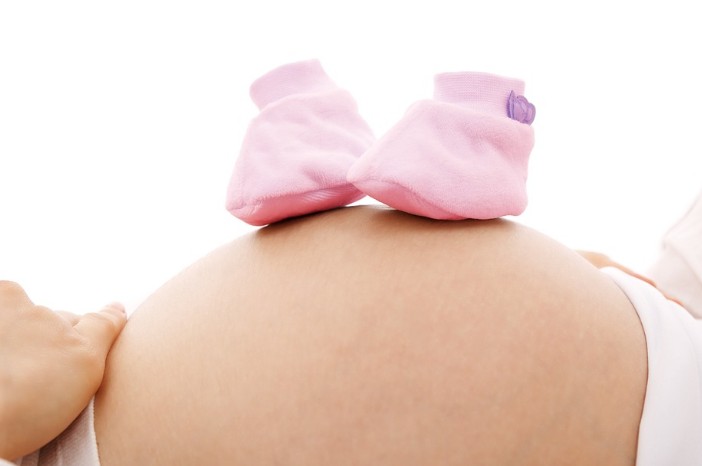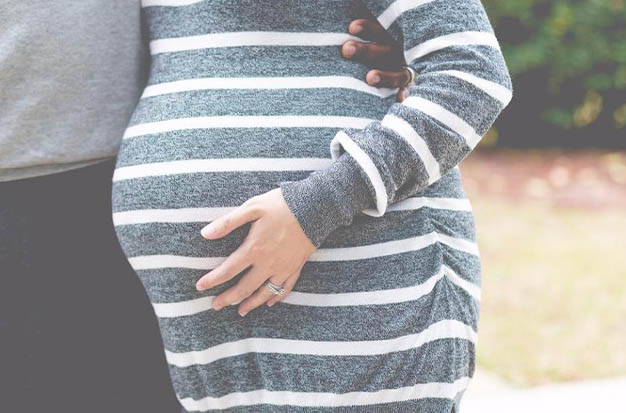If you’ve been diagnosed with polycystic ovary syndrome (PCOS), one of the first things you might have heard about the condition is that it can make it harder to get pregnant. That isn’t to say that it can’t happen; far from it. But for some people, that may be the case.
If you’re looking for advice on how to conceive with PCOS, you’ve come to the right place. There are a variety of ways you can increase your chances of getting pregnant, from lifestyle adjustments to tried-and-true fertility interventions. Let’s learn how with a little assistance from a professor of obstetrics, gynecology, and reproductive sciences.
Getting Pregnant With PCOS: Why is It Harder?
It is true that some women with PCOS may have a harder time getting pregnant. That’s because PCOS — a common hormonal disorder that affects around one in ten women of reproductive age — can make some people ovulate irregularly, or not at all. This irregularity can complicate matters because ovulation, or the monthly release of an egg, is essential to becoming pregnant; however, more on that later.
How Much Harder is It to Get Pregnant With PCOS? the Statistics
We are aware that one in ten women of reproductive age have PCOS. Of these, 70% to 80% don’t always release an egg (ovulate) during their menstrual cycle, making conception impossible in these months. This might sound like a high figure, but it’s believed that most women with PCOS will eventually be able to get pregnant if they manage the condition with treatment.
One person who’s part of that statistic is Stephanie, 35, who says she has “always wanted to be a mum” for as long as she can remember. But after visiting her doctor for a checkup and observing a heavy and irregular period, stomach pains, excessive hair growth, and weight gain, Stephanie was identified as having PCOS. A scan later found large cysts on her ovaries, and, insensitively, she was told it was “highly unlikely” she would conceive naturally.
“It was gut wrenching,” she recalls. “I’ve always had the urge to be a mother, so hearing that it might never happen makes you depressed.”
Stephanie was over 260 pounds and was 27 years old at the time. (120 kg), and wasn’t actively trying to have a baby. She nonetheless was aware of her desire to have children in the future. After talking to her health care provider, she was placed on a contraceptive pill to help regulate her heavy and irregular cycle. Additionally, a weight-management specialist was recommended to her, which all ultimately assisted Stephanie in getting pregnant when the time was right.
11 Effective Tips on How to Get Pregnant With PCOS Quickly
Your partner, age, and general health are a few factors that can influence whether you get pregnant. You must properly manage your medical conditions if you have PCOS. You might be able to get pregnant after a year of trying if you ovulate regularly, are younger than 35, and neither you nor your partner have any other fertility issues. Despite how upsetting this may seem, we can provide advice on how to naturally become pregnant quickly if you have PCOS.
Prior to anything else, we must comprehend the elements that increase your fertility. You must maintain a healthy lifestyle if you have PCOS. This includes:
- Maintaining a healthy weight
- Not smoking
- Limiting alcohol intake
- Undertaking regular physical activity
- Getting adequate hours of sleep and rest
Studies demonstrate that it is possible to conceive with PCOS if you have a healthy lifestyle. You have a better chance of becoming pregnant if you can maintain regular periods. No matter the cause, we are aware of how challenging the process of conception can be.
You may have questioned how to become pregnant quickly with PCOS from all of your doctors. You might have heard that having PCOS makes it harder to get pregnant. It is not impossible, though.
We’ll work with you to give pregnancy a fighting chance. Here are some tips for how to get pregnant fast with PCOS:
1. Follow An Anti-inflammatory Diet
An important factor in controlling PCOS symptoms is diet. Many women with PCOS tend to suffer from inflammation due to higher levels of androgens, which promote increased insulin production. As a result, eating the wrong foods can mess with your hormones.
An unhealthy diet could lead to oxidative stress in the body, which would then trigger an inflammatory response. To counter this response, you must follow an anti-inflammatory diet that will nourish your body and help you balance your hormones and blood sugar. Here are some diet tips:
- Limit red meat
- Avoid sugar
- Switch your regular tea or coffee with green tea
- Add omega-3 rich fish to your diet
- Eat lots of fruit and vegetables
- Use herbs and spices in your cooking (such as bay leaves, ginger, cumin, and fennel).)
- Consume unsaturated fats (nuts, seeds, olive oil)
2. Track Your Menstrual Cycle
You should track your period because it helps you deduce when you are ovulating and when is your fertile window. Four days each month (typically starting on the 12th day of the menstrual cycle) have a high chance of conception. Track your period as a result.
3. Confirm Ovulation With Test Strips
If you struggle to tell when you are ovulating, you can use ovulation kits. They resemble pregnancy tests. Every month, make a note of when you ovulate so you can track how frequently you ovulate.

4. Reverse Your Insulin Resistance
Many women with PCOS experience insulin resistance. This indicates that they have high blood sugar levels, which may jeopardize their ability to become pregnant. Though you might want to think about their side effects before taking them, sometimes doctors will prescribe medications to help.
You should start by removing refined carbohydrates and sugar from your diet. Additionally, make sure you consume enough protein, good fats, and fiber to maintain stable blood sugar levels. Given that myo-inositol effectively treats insulin resistance, your doctor might advise you to use it. More effective medications are being developed to help reverse insulin resistance.
5. De-stress
Your fertility is influenced by hormonal harmony and healthy adrenals. Our adrenal glands produce a stress hormone called cortisol that has an effect on all our hormones. If you can effectively manage and lower your stress and anxiety levels, you might have a better chance of pregnancy. You can experiment with various methods of stress reduction, such as yoga, meditation, and mindfulness.
6. Seek Medical Advice
PCOS is associated with hormonal imbalances that interfere with the growth and release of eggs from your ovaries. Pregnancy requires ovulation. Hence, you should seek medical advice from your doctor on how you can improve your ovulation and increase your chances of conceiving.
If you are under the age of 35, you should consult a doctor if you don’t conceive within a year of trying. That time period, however, is reduced to six months if you are over 35. Consult a reproductive endocrinologist for medical advice if you are experiencing other fertility problems, such as irregular periods or endometriosis.
7. the Need for Medication
Healthy ovulation is affected by high levels of androgens. For a pregnancy to be a success, a healthy egg must be released during ovulation. Hence, many women have to rely on medication for ovulation. These medications help you to ovulate regularly so that you can get pregnant. Find out the best medication and dosage for you by talking to your doctor or a fertility specialist.
8. Find Your Healthy Weight
Since the majority of women with PCOS gain weight, they can help improve ovulation and hormone production by losing even 10% of body weight. Your menstrual cycle, insulin sensitivity, and fertility can all benefit from even the slightest weight changes.
Studies have found that women who exercise regularly tend to have better fertility than those who do not exercise at all. To avoid affecting your fertility, do not overwork out as this may raise inflammatory levels in the body. 3–5 days of exercise per week would be sufficient.
9. Assisted Reproductive Technologies
If you have given ovulation medications a shot and it didn’t work, you might want to consider assisted reproductive technologies (ART) such as in vitro fertilisation (IVF). Studies show that women with PCOS who opt for IVF usually have the same level of success as women without In order to increase your fertility, your doctor will prescribe medication and recommend lifestyle modifications. In contrast, you might have to rely on ART if those interventions are unsuccessful.
10. Surgical Routes
If ART is unsuccessful, you might require to undergo certain surgeries to improve your fertility. One such surgery is ovarian drilling. This surgery often triggers ovulation. Even though ovarian drilling is not typically necessary, it has been discovered that up to 50% of women who undergo the procedure can become pregnant within a year of the procedure.
11. Don’t Lose Hope
The prevalence of PCOS is actually quite high. Yes, it may make pregnancy a tad bit more difficult. But it does not make it impossible. In order to avoid giving up, make every effort possible. Even with PCOS, a healthy pregnancy is very much possible. The best guidance on diagnosis and treatments is available from your healthcare provider.
Some of the simplest ways to learn how to conceive quickly with PCOS are listed above. Taking care of your health is the most crucial factor to consider when trying to conceive with PCOS. Your unborn child will be healthier the healthier you are.
Is It Possible to Get Pregnant With PCOS Quickly?
It’s common to feel like you want to have a baby right away when you decide that you want to. With a condition like PCOS, things can be a bit more complicated, but it is possible to get pregnant with If you maintain good health, PCOS will disappear quickly. Having said that, there’s no real metric for what “quick” is, apart from your own personal timeline, so try to keep that in mind if you decide you want to start trying.
“Probably 60% plus can achieve spontaneous ovulation through improved lifestyle and weight loss over a span of a few months,” says Pal. In that instance, provided you have one egg and your partner’s sperm is good quality, “success rates go back to what they are for an ovulatory woman [without PCOS].”
This was the case for Stephanie, who is now the incredibly proud mother of a son who is two and a half years old. “I was completely and utterly shocked when I finally became pregnant. It took four pregnancy tests and a scan to make me believe [I was pregnant],” she says.
Since treating her symptoms, Stephanie’s ovarian cysts have decreased in size and her cycle is now more regular with a lighter flow. Along with gradual weight loss, increasing the amount of exercise she did also contributed. “I looked at it like a lifestyle choice,” she says. “My eating behaviors have changed and are still changing. I walk a lot—up to 10 km per day at times—and it not only aids in weight loss but also improves my mental health.”
At the time of her diagnosis, Stephanie recalls that she had “given up hope of having children.” But fortunately for her, it happened when it was time to become pregnant and with the assistance of a weight specialist. “I can’t imagine life without my son now,” she says.
We all know it’s not always simple to lose weight, especially if there are other factors involved, like hormonal imbalances. The good news is that making a difference doesn’t always require drastic weight loss. “All it takes is a loss of 5% of your excess weight” to improve the likelihood of getting pregnant, says Pal.
Naturally, not every PCOS patient who desires a child will find success through weight loss. If lifestyle changes haven’t proven successful, or perhaps aren’t needed if you’re already active and maintain a balanced diet, a health care provider might recommend medication such as letrozole or clomiphene to help trigger ovulation. Short doses of these oral pills are typically taken for a number of cycles at the start of each menstrual cycle.
If these options don’t work, intrauterine insemination (IUI), also known as artificial insemination, may be suggested to help you conceive. In an effort to facilitate fertilization, sperm is inserted here into the uterus. Alternatively, in vitro fertilization (IVF) is another fertility treatment your health care provider may suggest next, which involves your egg being fertilized in a lab and then transferred into your uterus.
How to Get Pregnant With PCOS: the Takeaway
Remember: In many cases, having PCOS doesn’t mean you can’t start a family. Living with PCOS basically means that there are some circumstances that can make it more difficult to conceive. However, because everyone’s experience is unique and there are numerous treatment options, it is crucial to speak with your health care provider as with any health issue.
FAQs
How to Get Pregnant With PCOS and Irregular Periods
Obese or overweight women with PCOS may experience more regular ovulation as a result of a small weight loss, increasing their chances of becoming pregnant. For those who know they ovulate, having sex during the “fertile window” (the five days leading up to and including ovulation) boosts the chance of conception.
How to Get Pregnant With PCOS After 30
Women who get pregnant after 30 or who have PCOS will have more risks associated with pregnancy. Diabetes during pregnancy is one of these risks. To prevent or manage gestational diabetes and have a healthy pregnancy, a woman can take certain steps.
How to Get Pregnant With PCOS Quickly Naturally
- Insulin resistance must be overcome.
- De-stress.
- Eat a diet low in inflammation.
- Monitoring your menstrual cycle
- With test strips, verify ovulation.
- Take Inofolic Alpha as soon as possible.
What’s the Average Time to Conceive PCOS
If you have PCOS, you can still expect to conceive within a year (or even less) as long as you are ovulating normally and have no other risk factors for infertility.
What’s the Best Age to Get Pregnant With PCOS
Doctors advise trying frequently for PCOS patients who have trouble conceiving naturally. The highest odds of natural conception for women with PCOS remain before the age of 35, provided if ovulation happens frequently and there are no preconditions the other partner suffers from.



